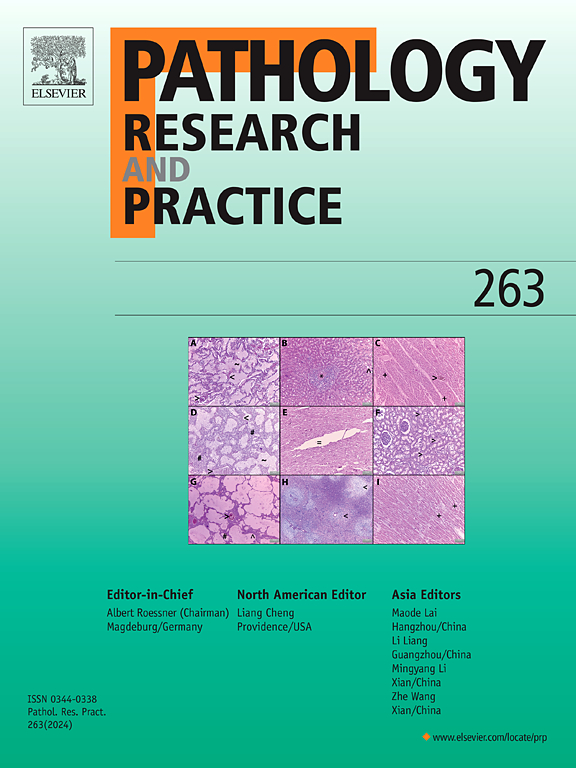Peptides in breast cancer therapy: From mechanisms to emerging drug delivery and immunotherapy strategies
IF 2.9
4区 医学
Q2 PATHOLOGY
引用次数: 0
Abstract
Breast cancer therapy can be improved by the application of multifunctional peptides and they have unique features, such as high specificity, minimized toxicity, and the capability to influence diverse processes. The role of peptides in breas cancer therapy is highlighted in the present review, examining their functions as therapeutic agents, diagnostic tools, and drug delivery application. Therapeutic peptides have displayed the ability to regulate key pathways in breast tumor, including HER2, VEGF, and EGFR, providing ideal alternatives to the conventional chemotherapy with reduced adverse effects. Additionally, peptide-based vaccines and immune-modulating peptides have demonstrated the capacity in enhancing anti-cancer immunity. The incorporation of peptides into nanoparticles has improved the delivery of drugs and genes, enhanced anti-cancer efficacy while minimizing side impacts. The progresses in the peptide engineering, including stapled peptides, peptide-drug conjugates, and cell-penetrating peptides, have remarkably increased their therapeutic efficacy and stability, elevating their applications in breast cancer therapy. Peptides can be developed using bioinformatics and high-throughput screening technologies to optimize pharmacokinetics and bioavailability. Despite their promise, peptides demonstrate challenges such as enzymatic degradation, limited stability, and high production costs. These obstacles can be addressed through strategies such as peptide cyclization, the employement of non-natural amino acids, and nanoparticle encapsulation. This review explores these recent advancements and strategies, providing ideal insights into the clinical potential of peptides in breast tumor therapy.
求助全文
约1分钟内获得全文
求助全文
来源期刊
CiteScore
5.00
自引率
3.60%
发文量
405
审稿时长
24 days
期刊介绍:
Pathology, Research and Practice provides accessible coverage of the most recent developments across the entire field of pathology: Reviews focus on recent progress in pathology, while Comments look at interesting current problems and at hypotheses for future developments in pathology. Original Papers present novel findings on all aspects of general, anatomic and molecular pathology. Rapid Communications inform readers on preliminary findings that may be relevant for further studies and need to be communicated quickly. Teaching Cases look at new aspects or special diagnostic problems of diseases and at case reports relevant for the pathologist''s practice.

 求助内容:
求助内容: 应助结果提醒方式:
应助结果提醒方式:


